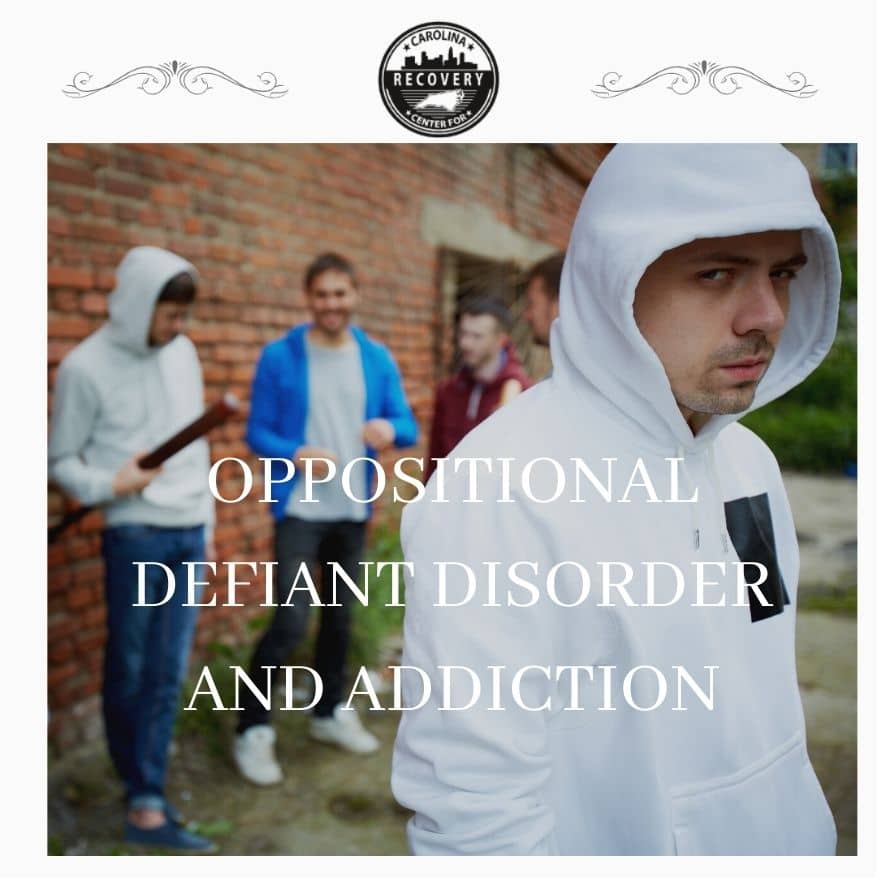Oppositional Defiant Disorder (ODD) and Addiction

Medically Verified: 2/1/24
Medical Reviewer
Chief Editor

All of the information on this page has been reviewed and verified by a certified addiction professional.
Every child can be difficult to deal with at times, especially when they are going through puberty. However, if your child or teenager experiences frequent bouts of anger, defiance, and vindictiveness towards authority figures, they may suffer from oppositional defiant disorder (ODD).
Unfortunately, oppositional defiant disorder is closely related to addiction. As a child or teenager behaves defiantly, they may turn to alcohol or drugs. This can worsen their behavior, making their mood swings, anger, and outbursts even more intense.
Thankfully, co-occurring ODD and addiction are treatable. With the help of a dual diagnosis addiction treatment center, your child can overcome the symptoms of their co-occurring conditions.
What is Oppositional Defiant Disorder (ODD)?
Oppositional defiant disorder is a condition in which your child displays a pattern of defiant, angry, and uncooperative behavior towards authority figures. This can lead to an inability to function in daily life, relationships, and school. This condition occurs in 10.9% of children and is common among young teenagers.[1]
While it is normal for kids to be defiant at times, children with ODD display these behaviors for longer than 6 months at a time.
Many kids with this condition also suffer from an array of other mental illnesses, including:
- Attention-deficit hyperactivity disorder (ADHD)
- Anxiety disorders like obsessive-compulsive disorder (OCD)
- Learning disabilities
- Mood disorders like depression
- Impulse control disorders
- Substance use disorders
Without proper treatment, the oppositional defiant disorder can continue into adulthood. Oftentimes, people with this condition abuse drugs or alcohol as a coping mechanism for underlying issues or as a way to defy authority even further.
Conduct Disorder
ODD may also develop into a condition known as conduct disorder. Conduct disorder is a condition that causes your child or teen to display a pattern of aggression towards others. They will also show serious avoidance of rules and social norms in the home, with peers, and at school.
Approximately 30% of children with ODD will develop conduct disorder.[2]
The signs of conduct disorder include:
- Frequently breaking rules like running away from home, skipping school, or sneaking out at night
- Being aggressive in a harmful manner, such as bullying, fighting, or being cruel to animals
- Lying, stealing, or damaging others property on purpose
Symptoms of Oppositional Defiant Disorder (ODD)
It can be difficult to distinguish the difference between a strong-willed child and one with oppositional defiant disorder. At certain stages of a child’s development, they will exhibit some of the signs of oppositional defiant disorder without actually having the condition.
The symptoms of ODD usually begin during the preschool years. While the condition may develop later, it almost always shows up before the late teens. The behaviors associated with ODD can cause significant disruption to your child’s ability to function in their daily life, causing issues at home, in school, and with their peers.
The symptoms of ODD are broken up into three categories: anger and irritability, argumentative and defiant behavior, and vindictiveness.
Anger and irritability:
- Easily and often loses temper
- Touchy and easily annoyed by others
- Angry and resentful
Argumentative and defiant behavior:
- Argues with adults or people in authority regularly
- Actively defies or refuses to comply with rules
- Deliberately annoys or upsets people
- Blames other people for their misbehavior
Vindictiveness:
- Often behaves spitefully or vindictively
- Has shown this behavior at least twice in the past 6 months
The oppositional defiant disorder can vary in severity. While some children only display symptoms at home, other children may show signs of the condition in school, at home, and with friends.
How are Addiction and ODD Connected?
Alcohol and drug use are common among teens who suffer from oppositional defiant disorder. ODD is a type of disruptive behavior disorder. According to research completed by the National Library of Medicine, children with a disruptive behavior disorder like ODD are six times more likely to suffer from a substance use disorder.[3]
Oftentimes, substance abuse serves as a coping mechanism for underlying issues among teens with oppositional defiant disorder. As stated previously, many children with this condition also suffer from other mental health issues like anxiety, depression, or ADHD. Living with the symptoms of those conditions without treatment can easily lead to an addiction.
Some people with ODD use drug and alcohol abuse as a means of defiance and a way to disrespect authority. Unfortunately, abusing drugs and alcohol with ODD often leads to an exacerbation of symptoms and increased risky behaviors.
When oppositional defiant disorder and addiction co-occur, they can make recovery harder to obtain. However, with the help of a dual diagnosis treatment program, teens who suffer from these co-occurring disorders can make a full recovery.
Finding Help for Addiction and Oppositional Defiant Disorder
If your child suffers from oppositional defiant disorder, you need to be aware of the fact that this condition often leads to substance abuse when left untreated. When your child begins abusing substances, the symptoms of their ODD will begin to worsen. This can make life difficult for both you and your child.
Contact Carolina Recovery Center today to get connected with a dual diagnosis rehab program that can help your child recover. Call now to get started.
References:

